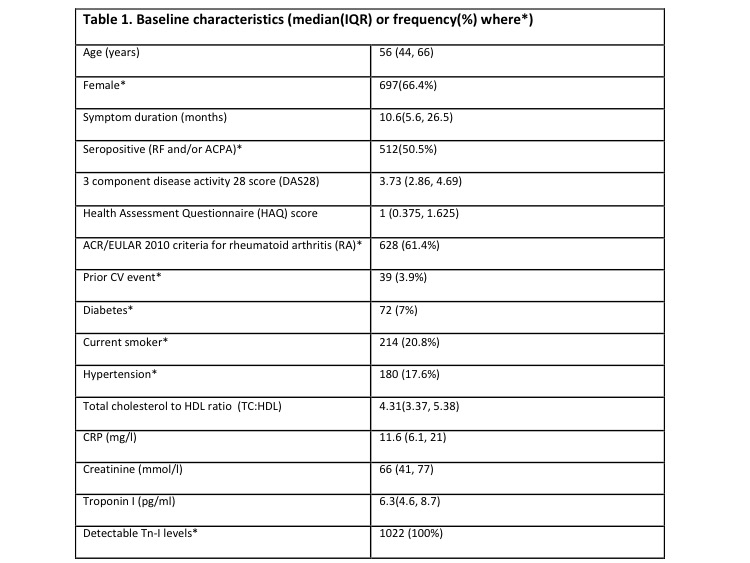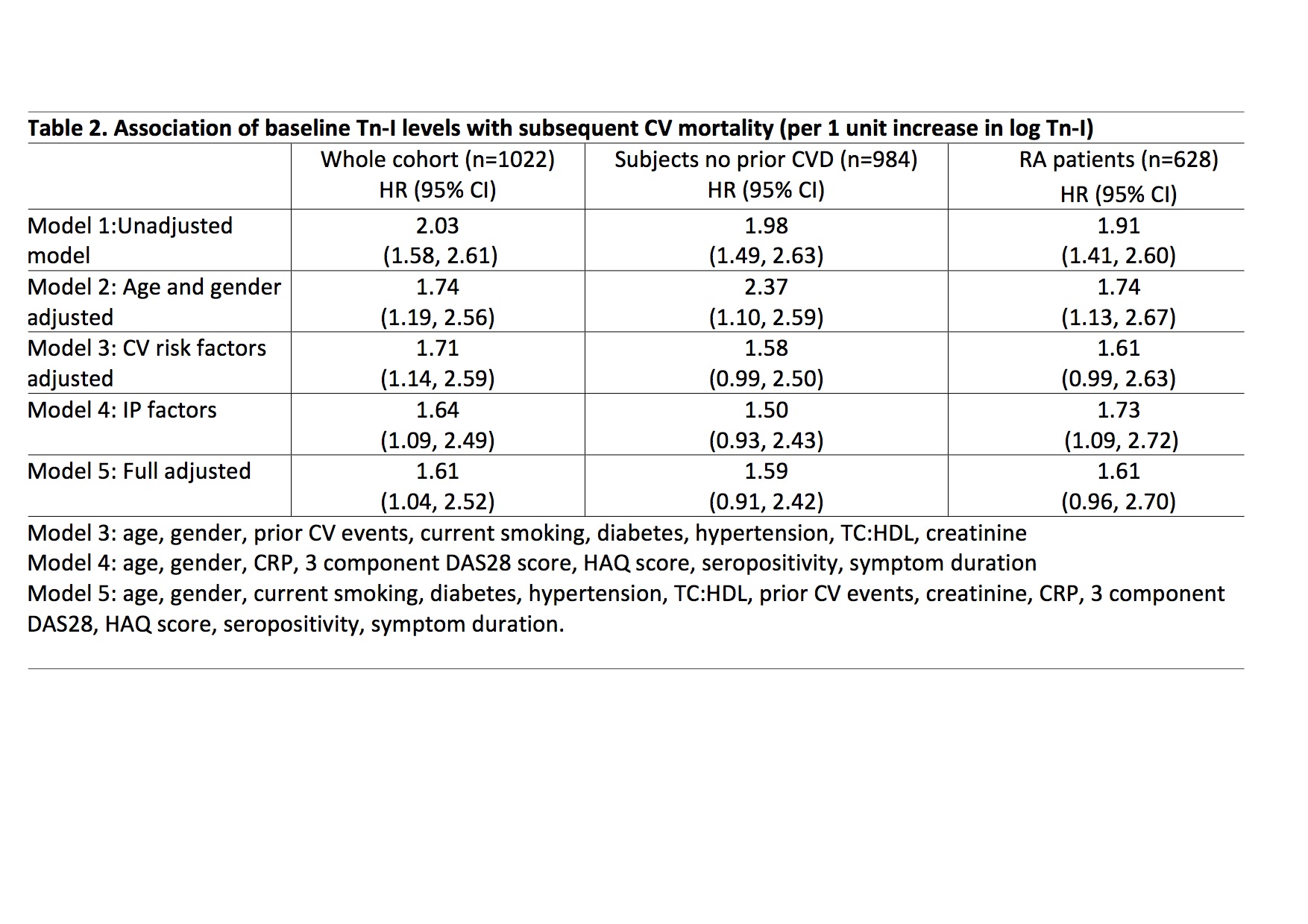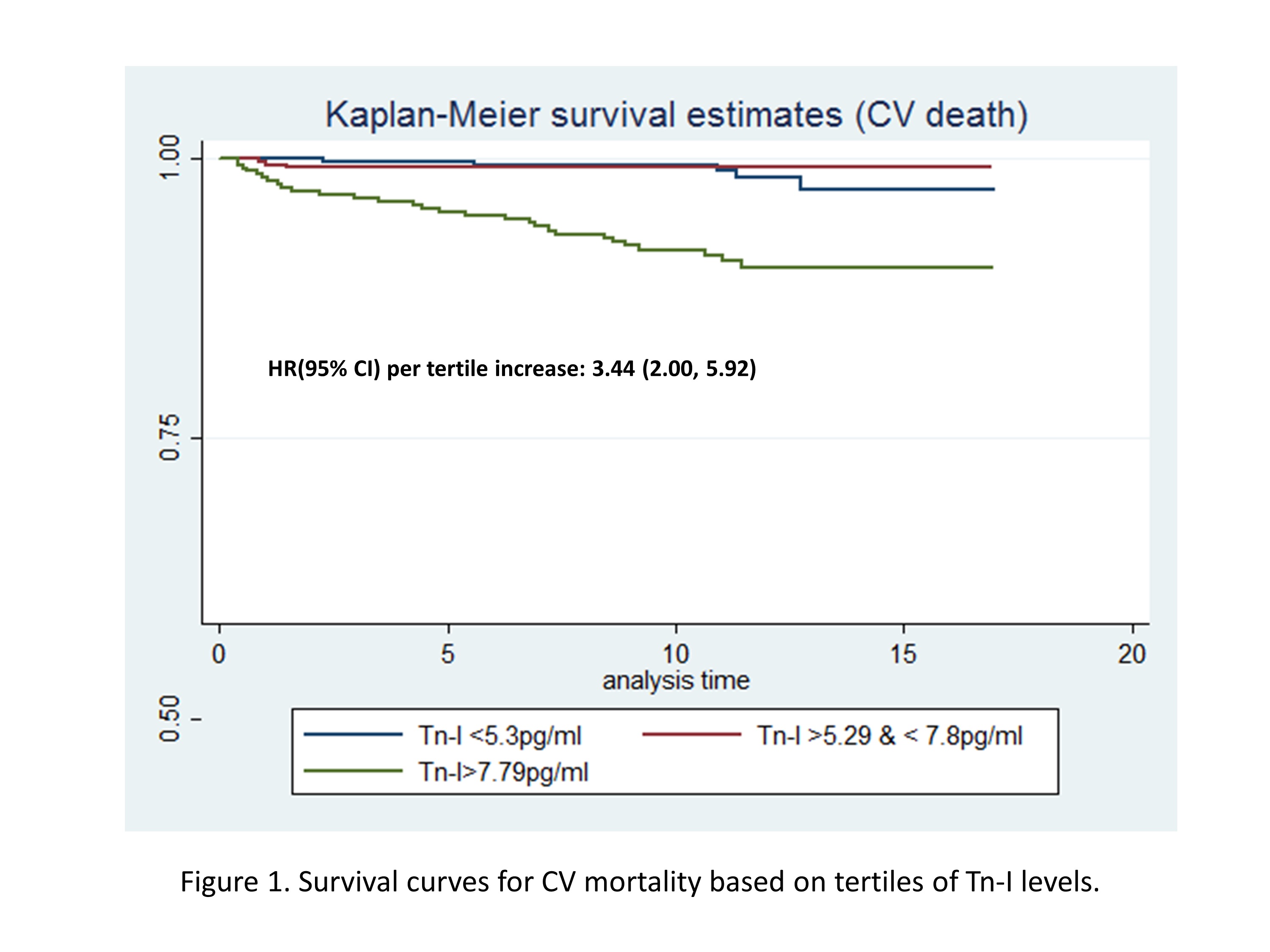Session Information
Date: Sunday, November 5, 2017
Title: Rheumatoid Arthritis – Clinical Aspects I: Cardiac Comorbidities
Session Type: ACR Concurrent Abstract Session
Session Time: 2:30PM-4:00PM
Background/Purpose: Serum troponin is used in clinical practice in the diagnosis of acute myocardial infarction. Recent studies have found that high sensitivity assays can predict cardiovascular (CV) events in the general population. We sought to evaluate the association of troponin and mortality in a cohort of inflammatory polyarthritis (IP) patients.
Methods: Patients recruited between 2000 and 2009 to the Norfolk Arthritis Register, an IP inception cohort (inclusion criteria: 2 or more swollen joint for 4 or more weeks, aged over 16 years) had CV risk factors and IP characteristics recorded at inclusion and blood samples stored. High sensitivity troponin I (Tn-I) was measured on baseline samples, using an automated clinical assay (Abbott, UK). Patients were flagged with the national death register and cause of death classified using ICD10 codes. Patients were followed until death or December 2016. Tn-I was log transformed for analysis. Association with all-cause and CV mortality was tested using Cox regression. Further Cox regression models were performed for CV mortality, with adjustment for CV then IP factors. Subgroup analyses were performed in those with no prior CV events and in those who met ACR/EULAR 2010 criteria for rheumatoid arthritis. The cohort was split into tertiles based on Tn-I levels and Kaplan Meier curves were used to explore differences in CV mortality.
Results: 1022 patients were evaluated. Baseline characteristics are seen in Table 1. 158 deaths occurred during 11,237 person years follow up, 37 were CV deaths. Tn-I levels were associated with all-cause and CV mortality (HR[95%CI]: 1.71[1.46, 2.00] and 2.03[1.58, 2.61] per 1 unit increase in log Tn-I ). Results from adjusted regression models are seen in Table 2.The association with CV mortality remained on adjustment for CV and IP factors. In both subgroup analyses, a significant association between Tn-I and CV mortality was found. Survival curves are seen in Figure 1. Patients in the highest tertile had a 7.7 fold increased risk of CV death compared to those in the lower tertiles (HR [CI 95%]: 7.78[3.56, 17.0]).
Conclusion: Tn-I levels are associated with CV mortality in IP, independent of CV risk factors and the association is not explained by baseline IP disease characteristics or inflammation. The role of Tn-I in CV risk prediction warrants further investigation.
To cite this abstract in AMA style:
Skeoch S, Welsh P, Gwinnutt JM, Humphreys J, Chipping J, Macgregor AJ, Verstappen SM, Symmons DPM, Sattar N, Bruce IN. Baseline Troponin Levels Are Associated with Mortality in a Cohort of Patients with Inflammatory Polyarthritis: Results from the Norfolk Arthritis Register [abstract]. Arthritis Rheumatol. 2017; 69 (suppl 10). https://acrabstracts.org/abstract/baseline-troponin-levels-are-associated-with-mortality-in-a-cohort-of-patients-with-inflammatory-polyarthritis-results-from-the-norfolk-arthritis-register/. Accessed .« Back to 2017 ACR/ARHP Annual Meeting
ACR Meeting Abstracts - https://acrabstracts.org/abstract/baseline-troponin-levels-are-associated-with-mortality-in-a-cohort-of-patients-with-inflammatory-polyarthritis-results-from-the-norfolk-arthritis-register/



